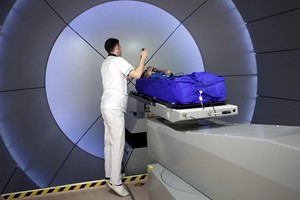The healthcare industry has showcased a dynamic transformation since the outbreak of coronavirus. Currently, the industry is in a state of complete flux and improvisation where financial tough times will be foreseen as numerous corporations are looking at introducing AI, machine learning and other forms of digital tools. Across the globe, the healthcare system has not been designed for such an unprecedented crisis. However, the industry is one of the very sectors that is a significant player in the eradication of the virus. Such uncertain times call for new reforms that have the potential to forever transform the industry. Hence, this column will explore how the pandemic may have shaped the healthcare industry.
Increased telehealth options
Many companies, clinics and hospitals have offered telehealth options for many years, but, suddenly this has become important more than ever. COVID-19 has accelerated the telehealth division by almost a decade in order to make this a commonplace and offer a convenient experience for providers, customers and patients. According to research published by an organization, the number of patients using telehealth grew from 11% in 2019 to 46% in 2020. Leaving organizations with no other choice but to provide telemedicine services, experts and professionals of the industry were able to disprove many assumptions made previously. Although these services have proven to offer accurate services, they certainly lack an in-person connection. With the pandemic, patients have realized the ease with which one can log in for a virtual appointment and consult a specialist – all within a tap away.
Streamlined Services
A typical patient experience has always been full of bureaucracies! Instead of services being patient-centric, many organizations have rather become donor-centric. However, with the surge in COVID-19 cases, patients have become the middle of their care and have forced the organizations to streamline their services with the support of innovative solutions. The new streamlined approach in the industry aims to make sure patients feel comfortable in such uncertain times and are given the highest healthcare service. The patient’s experience has become more efficient with hospitals and clinics having to streamline their services. With the standards of hospitals and clinics upended, healthcare providers are certainly finding better ways to operate in a much more efficient way. While healthcare organizations are embarking on a digital transformation, the pandemic has led the clinics to create a much more patient-friendly experience.
Consumerization of healthcare services
As a patient, one may often experience a limit in doctors and this comes often with a sense of powerlessness. However, the new wave of innovation and technology has enabled consumers towards an increase in the consumerization of healthcare, giving more authority and power to the patients. Healthcare is no longer an industry which was self-dominated. Today, patients are consumers who have ample options for their treatment. In fact, COVID-19 has accelerated this trend as more people are thinking of healthcare and want to be equipped to make the right decisions. New technology has made this possible for start-ups and new types of clinics to disrupt the healthcare space. In combination with these factors, the industry has also witnessed a surge in alternative and home-centred facilities for the elderly. However, consumerization goes above elderly. For instance, many companies have expanded to give their patients multiple treatment options that will best fit their budget and are in line with other factors. Although consumerization has always played a major role in this industry, the pandemic has nothing but redefined with the patient’s needs at the forefront. Capital University College has recently launched a new Master in E-Health Management in exclusive partnership with Italy’s most international business school, Rome Business School. In line with this program, students will be studying under the patronage of SIT – the Italian Society of Telemedicine that will enhance their skills and competencies to learn, manage, understand and apply advanced techniques in the healthcare industry. This is a unique program that combines electronic processes and communication strategies, bridging the gap between computer, health and communications and enabling one to become specialists in the health and management sector.
Dr Sanjay Batheja
Co-Founder & Director, Capital University College













